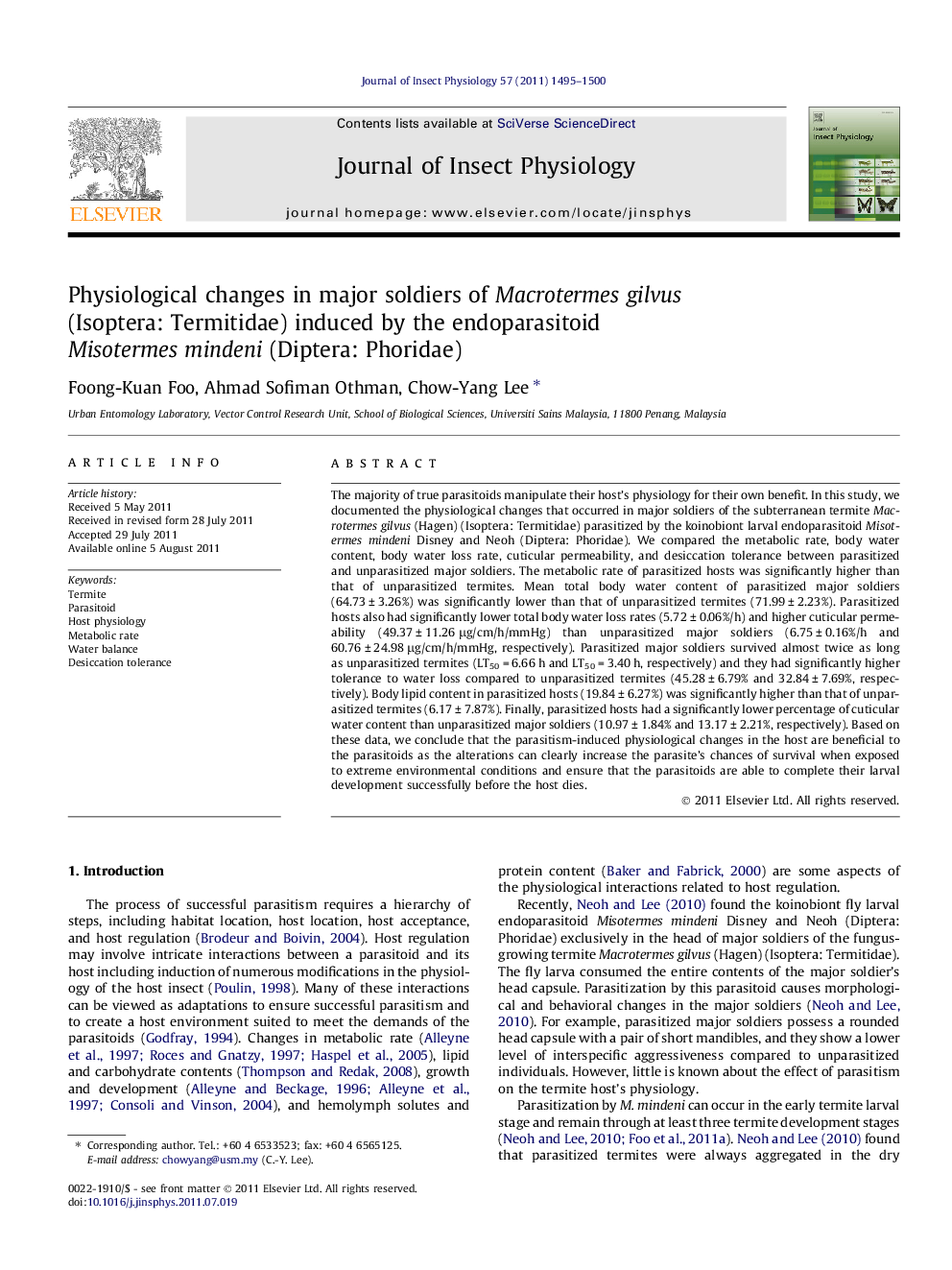| کد مقاله | کد نشریه | سال انتشار | مقاله انگلیسی | نسخه تمام متن |
|---|---|---|---|---|
| 2840685 | 1165348 | 2011 | 6 صفحه PDF | دانلود رایگان |

The majority of true parasitoids manipulate their host’s physiology for their own benefit. In this study, we documented the physiological changes that occurred in major soldiers of the subterranean termite Macrotermes gilvus (Hagen) (Isoptera: Termitidae) parasitized by the koinobiont larval endoparasitoid Misotermes mindeni Disney and Neoh (Diptera: Phoridae). We compared the metabolic rate, body water content, body water loss rate, cuticular permeability, and desiccation tolerance between parasitized and unparasitized major soldiers. The metabolic rate of parasitized hosts was significantly higher than that of unparasitized termites. Mean total body water content of parasitized major soldiers (64.73 ± 3.26%) was significantly lower than that of unparasitized termites (71.99 ± 2.23%). Parasitized hosts also had significantly lower total body water loss rates (5.72 ± 0.06%/h) and higher cuticular permeability (49.37 ± 11.26 μg/cm/h/mmHg) than unparasitized major soldiers (6.75 ± 0.16%/h and 60.76 ± 24.98 μg/cm/h/mmHg, respectively). Parasitized major soldiers survived almost twice as long as unparasitized termites (LT50 = 6.66 h and LT50 = 3.40 h, respectively) and they had significantly higher tolerance to water loss compared to unparasitized termites (45.28 ± 6.79% and 32.84 ± 7.69%, respectively). Body lipid content in parasitized hosts (19.84 ± 6.27%) was significantly higher than that of unparasitized termites (6.17 ± 7.87%). Finally, parasitized hosts had a significantly lower percentage of cuticular water content than unparasitized major soldiers (10.97 ± 1.84% and 13.17 ± 2.21%, respectively). Based on these data, we conclude that the parasitism-induced physiological changes in the host are beneficial to the parasitoids as the alterations can clearly increase the parasite’s chances of survival when exposed to extreme environmental conditions and ensure that the parasitoids are able to complete their larval development successfully before the host dies.
Figure optionsDownload as PowerPoint slideHighlights
► We study parasitism-induced physiological changes by Misotermes mindeni in host, M. gilvus.
► Parasitized host has higher metabolic rate and greater body lipid content than unparasitized one.
► It also showed lower body water content, water loss rate and cuticular penetration.
► Parasitized host has greater tolerance to water loss.
► Physiological changes in host explained ecological success of M. mindeni.
Journal: Journal of Insect Physiology - Volume 57, Issue 11, November 2011, Pages 1495–1500